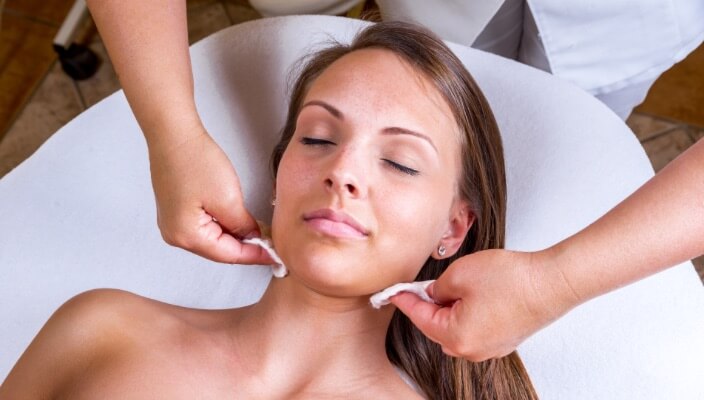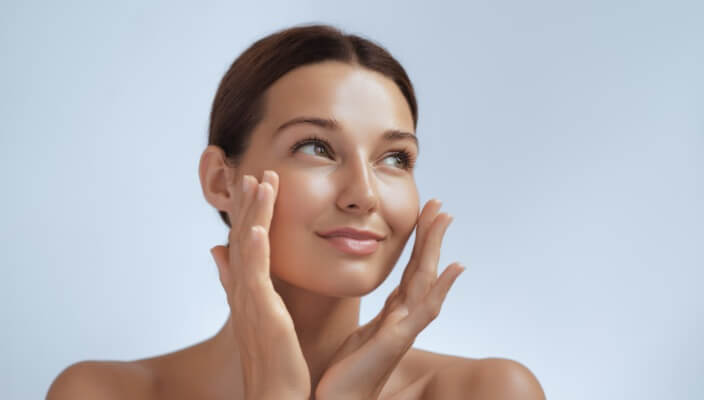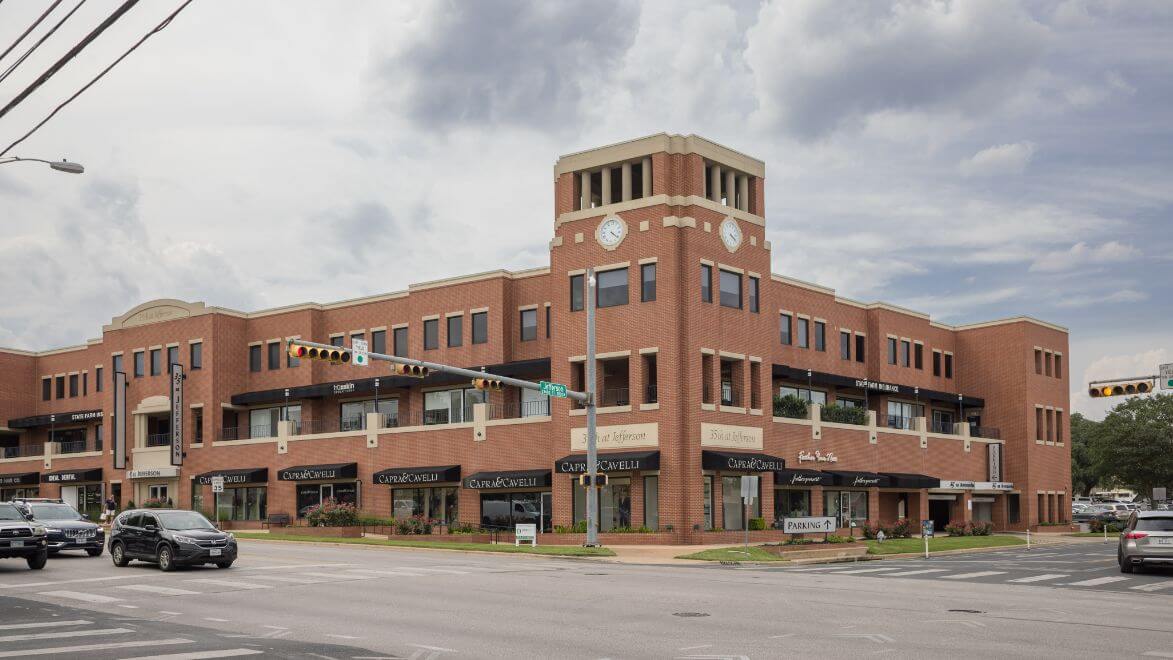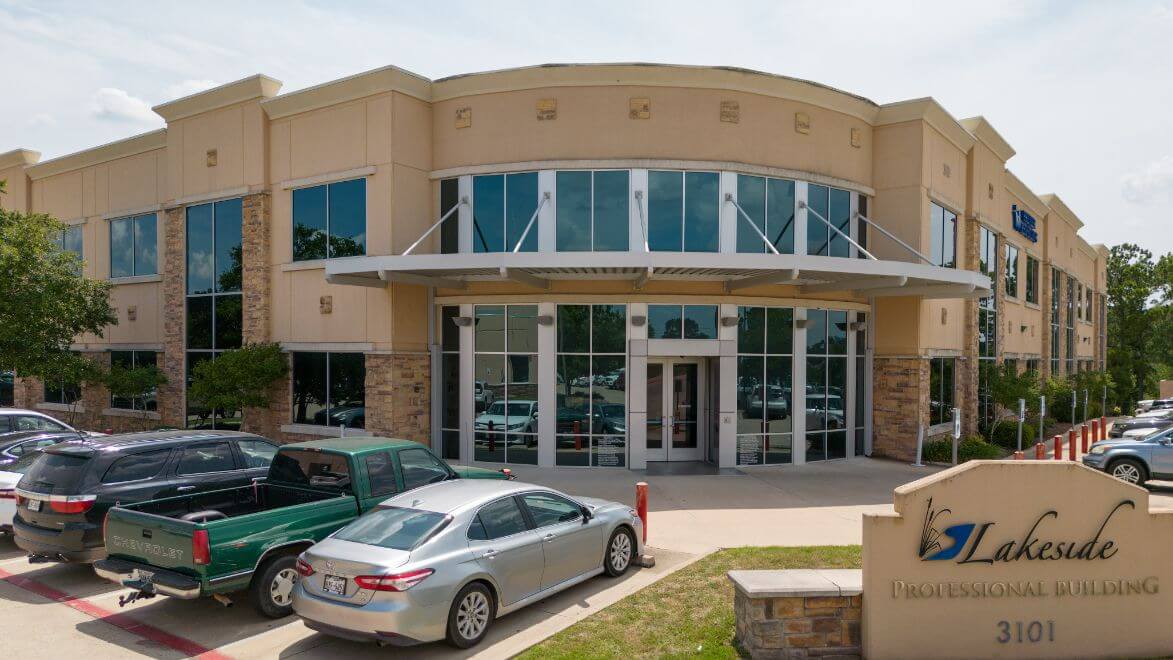Are Chemical Peels Safe for My Skin?
Chemical Peels in Central Texas
 Chemical peels are performed by applying a chemical solution to the skin to remove the top layers and encourage new, younger looking skin to regenerate. Tru-Skin Dermatology performs many different types of chemical peels to help you look your best. Chemical peels can be performed on the face, neck, chest or hands and are a safe, great way to help improve common skin issues, such as treating certain types of acne, mild scarring, fine lines and wrinkles, uneven texture, sun damage, age spots, freckles, and dark patches.
Chemical peels are performed by applying a chemical solution to the skin to remove the top layers and encourage new, younger looking skin to regenerate. Tru-Skin Dermatology performs many different types of chemical peels to help you look your best. Chemical peels can be performed on the face, neck, chest or hands and are a safe, great way to help improve common skin issues, such as treating certain types of acne, mild scarring, fine lines and wrinkles, uneven texture, sun damage, age spots, freckles, and dark patches.
At Home vs. Medical Office
Store bought at-home peels are less effective than professional grade chemical peels. If not performed correctly, they can over-irritate your skin and cause conditions like acne and rosacea to flare. Chemical peels from licensed medical professionals are more likely to give you better results without the worry. Patients with darker skin tones should always go to an experienced medical professional for any peel to avoid permanent dark marks and other side effects. Tru-Skin Dermatology provides safe chemical peels for patients throughout Central Texas. Schedule your appointment today!
Am I A Good Candidate for Chemical Peels?
Fair-skinned patients are better candidates for chemical peels. Patients with a darker complexion can also achieve great outcomes with repeated light superficial chemical peels since heavier peels have a greater risk of darkening skin tone after treatment.
Chemical peels are NOT recommended if you:
- Have taken oral isotretinoin (Accutane, Claravis etc) in the past 6 months
- Have excessive sagging skin
- Have frequent or severe outbreaks of cold sores
- Have a history of keloids
- Have psoriasis
- Are pregnant or breastfeeding
Types of Chemical Peels
Different chemical solutions provide different results. The choice of chemical depends on your goal and skin tone. During your initial consultation with our team, we’ll diagnose what the best possible approach is for you and your skin using glycolic acid, trichloroacetic acid, salicylic acid, lactic acid or a combination. There are 3 levels of chemical peels: light, medium and deep.
Light Chemical Peel
- Uneven skin tone
- Fine wrinkles and crow’s feet
- Acne
- Dryness
Medium Chemical Peel
- Uneven skin tone
- Deeper wrinkles
- Acne scars
Deep Chemical Peel
- Extremely deep wrinkles
- Deep scars
- Precancerous growths (actinic keratoses)
Chemical Peels at Tru-Skin Dermatology
What to Expect After The Chemical Peel
Depending upon the depth of your chemical peel, you may have swelling, redness, crusting, dryness, skin sensitivity, itching, and peeling of the treated areas which could last for 1 to 2 weeks similar to sunburn. In the days after the peel, you may have a minor acne breakout, the skin may feel and look tight, with parchment-paper-like changes or darkening. These are expected reactions. Avoid picking, rubbing or scratching your skin as it can cause scarring. New, rejuvenated skin may look pink or red for several months and must be protected from the sun.
Benefits of Chemical Peels
No matter what type of chemical peel you get, they can benefit you in many different ways. Here are some of the most common benefits of chemical peels.
Acne & Acne Scars
Most people have had to deal with acne at some point in their life. This common inflammatory skin condition is usually treated with topical ointments and products. We usually recommend a light or medium chemical peel for acne treatment. Chemical peels can help more severe acne conditions. They treat acne by:
- Breaking down plugged hair follicles
- Killing bacteria
- Decreasing your skin’s oil production
- Reducing inflammation
- Increasing your skin’s ability to absorb topical medication
After treating acne for years, your skin may have acne scars. Chemical peels can also help treat these scars. Scars are created by the skin creating new collagen fibers to repair the lesions and areas where acne had taken place. These bumps and raised scars create depressions in your skin. The chemical peel process can exfoliate the top layer of skin to remove the excess collagen and scar tissue. We recommend medium chemical peels for deeper acne scars.
Rosacea
Rosacea is a skin condition that causes red bumps, swelling, and other inflammations. It can also cause acne breakouts. We may recommend a light chemical peel for mild rosacea symptoms to alleviate the skin and cause natural healing.
Signs Of Aging & Scars
Chemical peels are also safe and effective at reducing signs of aging skin. The chemical peel process helps your skin regrow and produce collagen and elastin. This effect then helps your skin look and feel stronger and smoother, reducing noticeable wrinkles, roughness, and dryness. However, we won’t recommend chemical peels for treating deeper wrinkles. We do use chemical peels to help reduce the signs of:

Get A Chemical Peel at Tru-Skin Dermatology
If you are interested in a chemical peel to address wrinkles, acne, age spots, or skin discoloration, schedule an appointment at Tru-Skin Dermatology to start your journey to healthy, radiant skin.
Featured Products
Check your local office for current stock!
Check your local office for current stock!
Related Blogs

- General Dermatology
- Skin Care
A good facial cleanser is a crucial part of any skincare regimen. But not all cleansers are created equal. Are you using a facial cleanser that is tailored to your skin’s specific needs? Read this blog to learn what to look for.
Read More
- Cosmetic Treatments
When it comes to having healthy and glowing skin, there is no better option than chemical peels. Read to learn more about the treatment and benefits.
Read More
- General Dermatology
- Skin Care
Having sensitive skin can be a real challenge. In this blog post, we’ll give you some insights on how to develop an effective skincare routine for your sensitive skin, so you can keep it healthy and glowing without any irritations.
Read More


